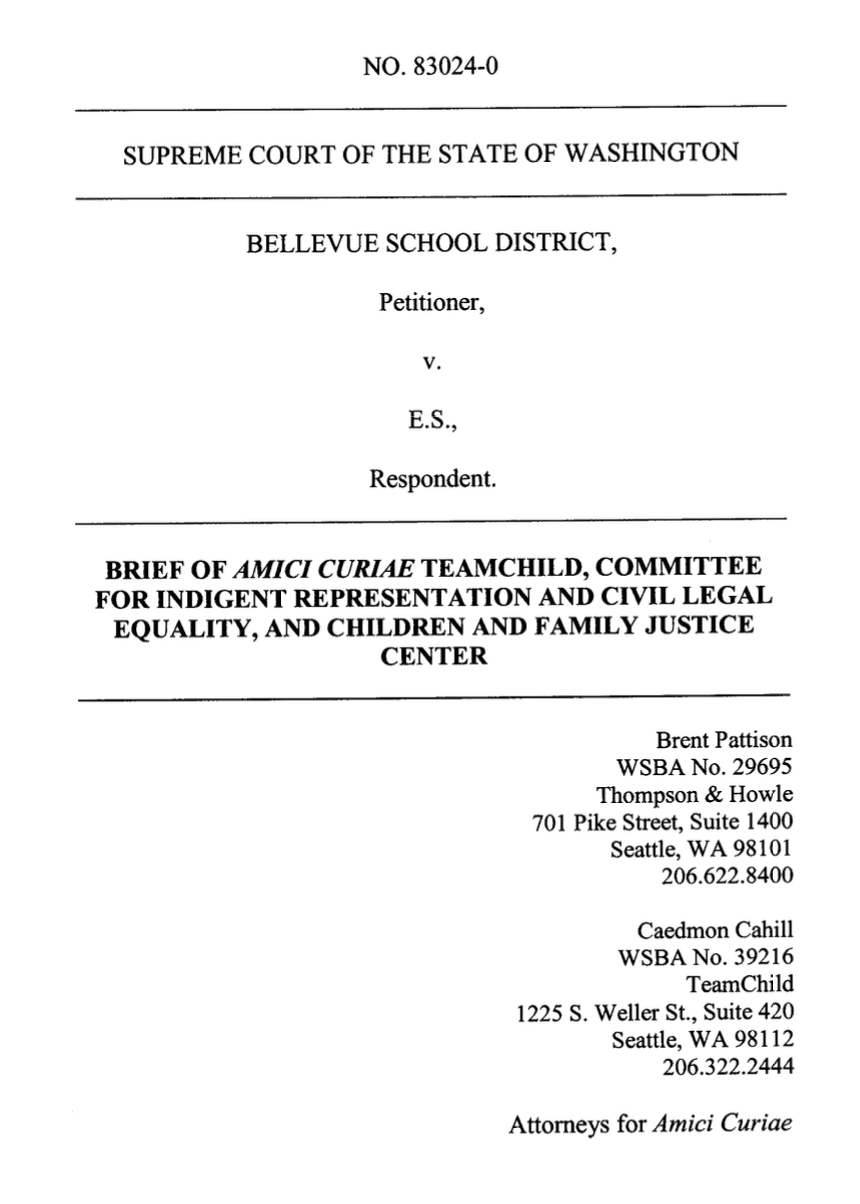
Summary of Argument
The unanimous three-judge Court of Appeals panel correctly decided that due process requires appointment of counsel for children in truancy proceedings. Amici TeamChild, Committee for Indigent Representation and Civil Legal Equality (CIRCLE), and the Children and Family Justice Center (CFJC) agree with E.S., and other amici that the Court of Appeals decision should be affirmed. In this brief, TeamChild, CIRCLE, and CFJC write to emphasize the ways in which a child's right to education is at stake in truancy proceedings, and to argue that children without counsel in truancy proceedings are denied a meaningful opportunity to be heard. Although this brief focuses on a child's educational interests in a truancy proceeding, Amici agree that the liberty and privacy interests at stake in truancy proceedings provide additional bases for appointing counsel in state-initiated adversarial proceedings against a child. When considered together, these three interests compound to make the basis for a right to appointed counsel even stronger.